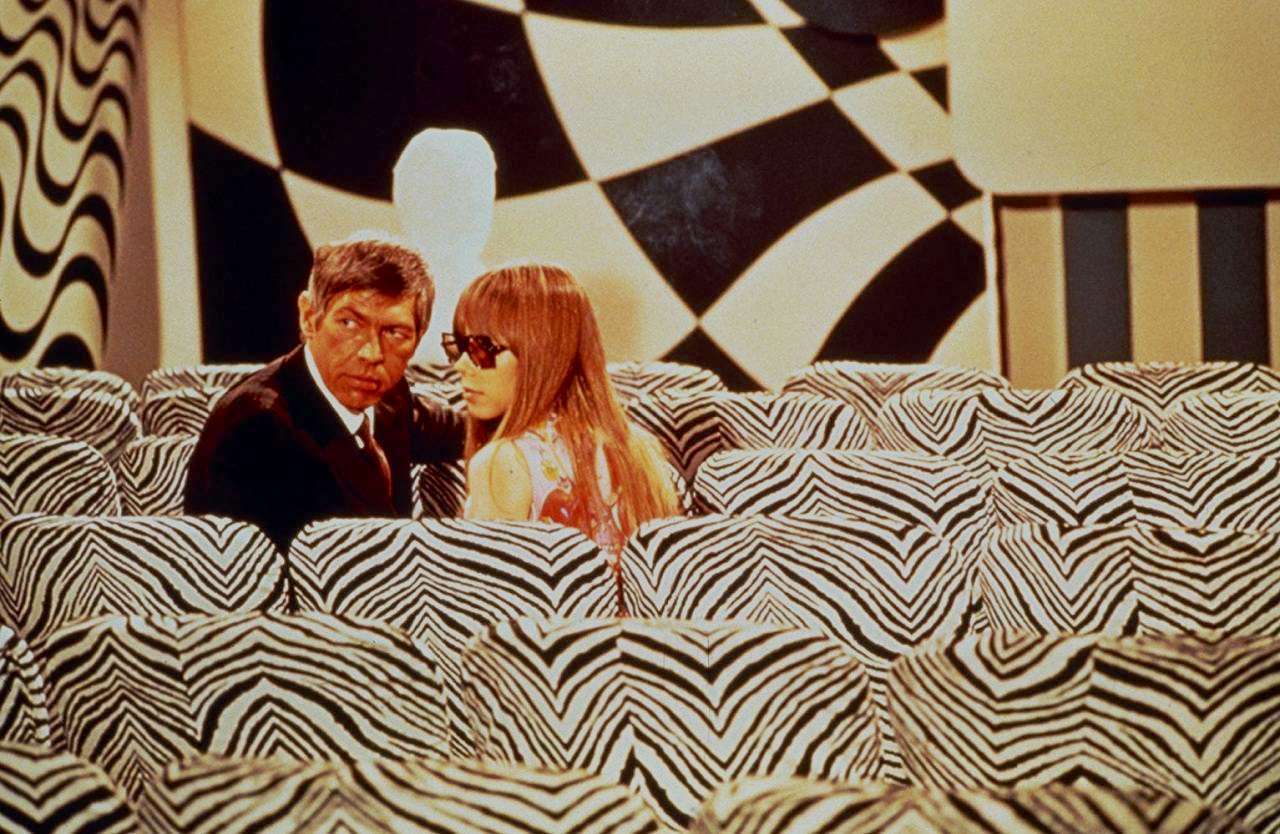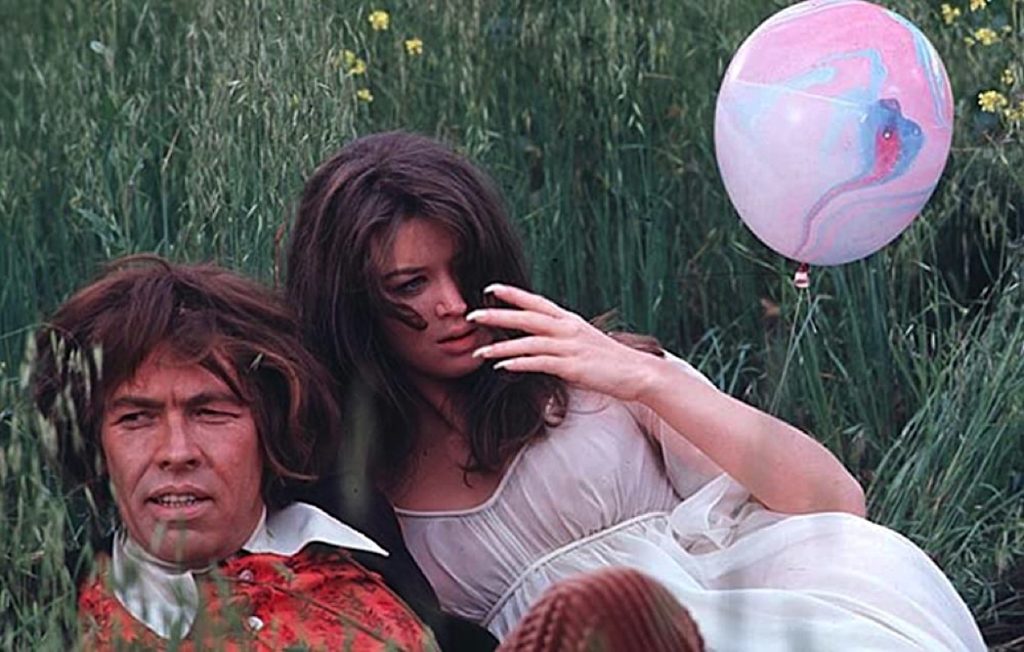With Elon Musk currently trailing his Neuralink “brain machine interface” idea as the future of inter-personal communications, how about The President’s Analyst, a 1967 movie that got there first?
It’s called the Cerebrum Communicator – a brain implant that will render phone calls unnecessary – and comes at the familiar point in this spytastic spoof when the evil megalomaniac mastermind is laying out his plan for total world domination (or something) to Dr Schaefer, whose role as the US president’s analyst has got him caught up in a pantomime of escalating espionage mayhem.
Before we all get too carried away with an idea that arrives from nowhere and is soon despatched there too, it’s worth mentioning that though The President’s Analyst is brilliant, almost the best of its sort, as an example of a particular type of 1960s film, as an artefact in its own right it fares a lot less well. It’s a satire that hits barely any targets (unless the US phone company is a personal obsession), a comedy that raises barely a smirk.
Two things to say about its star, James Coburn. First, the official line is that by this point in his career Coburn didn’t want to make any more Flint films (1966’s Our Man Flint and 1967’s In Like Flint), the 007 spoofs that had finally propelled him to leading man status. And yet here he is, having abandoned all that semi-comic knockabout spy-fi for The President’s Analyst, which turns out to be exactly the same sort of thing. Dr Schaefer (Coburn) may not be a suave daredevil spy draped in women, but the situations he winds up in are similar. However, Coburn’s waning enthusiasm for Derek Flint may not be all it seems. What an actor says and what he means are often two different things, especially when his agent is mid-negotiation on sequels to a successful franchise.
Second, and this is maybe more surprising, the career of “coming man” Coburn, charismatic as hell, handsome, long-limbed, with a voice like a charm, more or less peaked around here. His “leading man” era – barely two/three films in – was already nearly over, and he’d spend most of the rest of his career back in support roles, and TV movies, a king without a crown.
As to the film itself, it’s often described as a political satire, possibly because Coburn plays a shrink called on to attend to the president. But the film’s targets are actually 1960s social mores and there is barely any political content. The president never appears on screen, and nor do we see him in a therapy session with Dr Schaefer (Coburn), not even in silhouette.
Instead, its big joke is that having been surreptitiously recruited by a patient (Godfrey Cambridge, excellent) who was actually a secret agent, and then having been vetted by representatives from the perpetually warring US spy agencies, Schaefer is very quickly driven crazy by the rigours of the job. He becomes paranoid. Justifiably. Being the president’s shrink makes him a target for all the other spies in the world and he’s soon being followed night and day by a United Nations of caricatured comedy spies, chief among them being the USSR’s Kropotkin (Severn Darden, also excellent).
Dr Schaefer does a bunk, hiding out first of all with a family of “liberal” Americans, then with some hippies (among them Barry McGuire, then famous on account of his hit song, Eve of Destruction) before winding up with Arlington Hewes (Pat Harrington), the Elon Musk-style visionary boss of the phone company with a plan to implant every human with a chip that will make phone calls redundant.
Here the film hits its satirical stride, if only in hindsight. It would take the arrival of the connected world, some decades down the road, for the chip idea to look really troubling. At the time it merely separated out Hewes from the many other megalomaniac masterminds queuing to get into cinemas. But there is a serious idea here also, and the film makes several prescient points about the emerging surveillance state – CCTV is everywhere.
The President’s Analyst is the sort of film Hollywood was churning out in 1967 to appease a troubling demographic, the “young people” who weren’t coming to its films any more. That gig would eventually go to the Scorsese-Coppola-Milius-Bogdanovich-Spielberg-Lucas-Friedkin (add your own fave) gang, but in the interim it went to low-budget writer/directors like Theodore J Flicker. Like others with a similar brief from the top, he’s decided to go all in on the idea of grooviness – Schaefer is a groovy dude, with a groovy pad, a groovy chick (Joan Delaney) and groovy threads. The soundtrack is by Lalo Schifrin, a master of the rinky-dink, who is borrowing the cocktail-hour chintz of Neal Hefti’s The Odd Couple soundtrack and mixing it with the advertising-jingle catchiness Schifrin himself perfected in the Mission Impossible theme for TV.
Never mind the plot, feel the vibe, in other words. Cinematography is by William Fraker, of Rosemary’s Baby and Bullitt fame, also making this very much a product of its era. Never actually funny, the sort of adjectives that have stuck to The President’s Analyst from the outset are ones like “quirky” and “madcap”. Its pile-it-high-sell-it-cheap chaotic zaniness and one-thing-after-another plotting are reminiscent of Casino Royale, another flop from 1967, the first summer of love – it was a big year for LSD, which might explain it.
The President’s Analyst – Watch it/buy it at Amazon
I am an Amazon affiliate
© Steve Morrissey 2021


